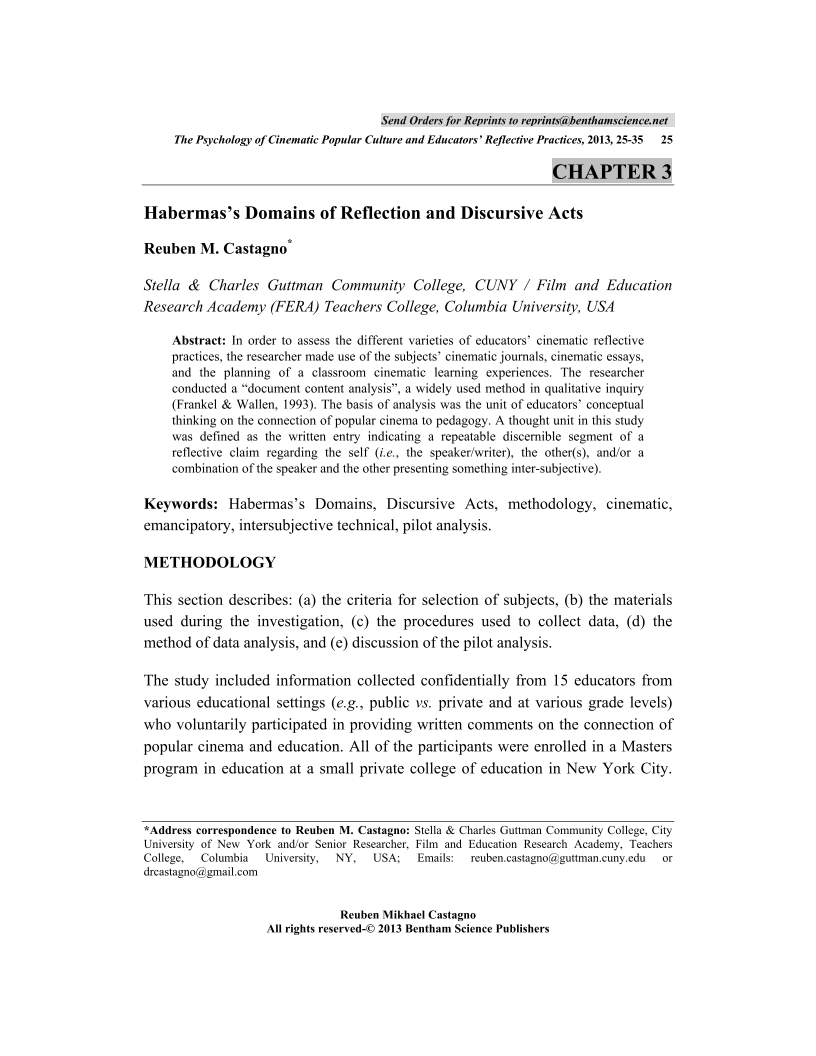Habermas's Domains of Reflection and Discursive Acts

- By Reuben Mikhael Castagno1
-
View Affiliations Hide Affiliations1 Stella & Charles Guttman Community College, Film and Education Research, Academy (FERA) Teachers College, Columbia University, USA
- Source: The Psychology of Cinematic Popular Culture and Educators' Reflective Practices , pp 25-35
- Publication Date: December 2013
- Language: English
Habermas's Domains of Reflection and Discursive Acts, Page 1 of 1
< Previous page | Next page > /docserver/preview/fulltext/9781608058105/chapter-3-1.gif
In order to assess the different varieties of educators' cinematic reflective practices, the researcher made use of the subjects' cinematic journals, cinematic essays, and the planning of a classroom cinematic learning experiences. The researcher conducted a "document content analysis", a widely used method in qualitative inquiry (Frankel & Wallen, 1993). The basis of analysis was the unit of educators' conceptual thinking on the connection of popular cinema to pedagogy. A thought unit in this study was defined as the written entry indicating a repeatable discernible segment of a reflective claim regarding the self (i.e., the speaker/writer), the other(s), and/or a combination of the speaker and the other presenting something inter-subjective).
-
From This Site
/content/books/9781608058105.chapter-3dcterms_subject,pub_keyword-contentType:Journal -contentType:Figure -contentType:Table -contentType:SupplementaryData105

